Chanć Deschamps-Prescott, Joins The Herd Has Spoken
Big Mountain & Freeride Skier -- Chanć Deschamps-Prescott
Chanć Deschamps-Prescott is a big mountain and freeride skier. He’s an athlete who’s sport does not have a clear path or course, just mother nature and the way of the mountain. When competing, there's no time to consider the fear of a run -- only accomplishing the immediate task of going big and making it to the bottom. Chanć’s had to overcome adversity and long-term injury that set back his skiing career. Through discipline, deep breathing, and introspection, Chanć continues to compete on the world-stage while pursuing a professional medical career in Sports Medicine and Training.
Apple Podcasts | Anchor.fm | Breaker | Google Podcasts | Spotify | YouTube
Enjoy the conversation between Chanć and Brad
Brad
Chanc welcome to The Herd Has Spoken.
Chanć
Hey, how are you doing? Thanks for having me stoked to be here.
Brad
Absolutely. It's, it's a pleasure. I guess the natural starting point here is, what the heck is freeride skiing?
Chanć
Alright, so freeride skiing is basically, it's kind of like, I don't know, if you've ever watched a ski movie, that'd be like the best interpretation of it is like, you watch ski, maybe you see somebody ski at Halle line. And they're hitting cliffs and jumps doing tricks we're not, you know, it's basically bringing the whole mountain together, and the whole last every aspect of skiing together. And then just taking it to the top of a big mountain, and skiing down as fast as you can light on your feet, doing tricks, just having a good time. skiing with the boys, seeing who can do the coolest line down really, it's like whoever does the ski movie line is the winner.
Chanć
I love it. So your, your, your top 20 in North America in terms of qualifying for the Freeride World Tour. So how does how does it work? Right? How is how do we determine who the winner is? So you're going from the top of the mountain, you're hitting these huge cliffs getting ridiculous amounts of air that anyone is listening and has no idea what Freeride World Tour is, do yourself a favor, Google it, check it out, you're gonna be blown away in terms of some of the stuff that Chanc is doing. But we'd love to hear a little bit more in terms of how success is determined in terms of freeride tours.
Chanć
Okay, so yeah, it's broken up into five categories. So you have, the first thing is line choice. So everything's all based around your line score.
Brad
So like blind score would be like the difficulty of the line and a line is your path from the starting point to the bottom of the mountain, correct?
Chanć
That's correct. Yep. And so yeah, so basically, like, you know, cliffs add to your line score. So if you're hitting a bigger tricks, add your lines, well, tricks don't really add your lines, where but basically, cliffs, going over exposure, skiing fast through shoots. Basically anything where you're near or going off exposure adds to the line score. And then so that's the first category and everything's based around that and then you add fluidity. So like, that's like, did you hesitate above a cliff? Or did you just ski right off of it full speed, no, stop, no hesitation, like you got this fully confident. It's really just like, all about the confidence of your skiing, like, not necessarily like how confident you are, but more like how confident you look on the mountain. And then there's control. So if you have any control issues, if you've dropped a hand, if you back slab, if you butt check anything where it looks like you're just not control, if you roll the windows down, when you're coming off the cliff, instead of just being tightened the air and looking like you got this. And then the third one is technique. So I don't know if anybody is a racer out there, or whatnot. But a type of like, you know, you want to make sure you're getting angulation in your turns. Like just making really big gestures, doesn't matter what type of train you're going over, if it's chopped out its power, what's mobiles, you're making a big turn, and you're just crushing it and you don't look like anything's slowing you down. And then the last one style and energy. So that's where mainly tricks are included. So like you got tricks you got grabs, you know, so if you go to grab your ski, you know backflips, all that stuff, anything where you're just adding stuff to that line where you just do something cool off the off the cliff, even if you did like a spread eagle, you know, and you just go Whoo, you know, that's, that's gonna add to your style and energy. Part of that is to is like, just like, do you look like you were having fun on the mountain? Do you look like you're just flowing down the mountain versus just like being like, super stacked and super boxy? And not? You know, like, it's kind of a feel like, yeah, and you can't really it's hard to explain because it's just like, Stein energy is really just the feel of how you run when, and how you look. And like how you are perceiving yourself to the rest of the people that are watching.
Brad
But a lot of those things seem fairly subjective. So when you get to the bottom of the mountain, do you know when you crushed it? Or is there quite a bit of uncertainty between how you feel you did and what the judges actually think you did?
Chanć
Yeah. You know, that can be one of the most frustrating parts about big mountain because yes, it is subjective. You have to know what the judges are looking for. Some judges really like how you ski a lot more. And they think that's a lot more important than like the actual Cliff snares you're hitting. And so especially in the United States, they definitely tend to like to see a lot of good skiing, versus were in Europe, but definitely they like to see the big errors. Sometimes, you know, get docked as much for having a bottle if you go for something that's worth it. So it just depends on where you're at. Depends on the judges, but for the most part, they just want to see good skiing, clean skiing, nice the key
Brad
Who are these judges? I mean, that seems like a pretty good deal. Like get get a chance to watch guys doing big mountain skiing and judge you know how fluid they're being how much how in control they are is your your jumping off these cliffs?
Chanć
So in the primitive days, you know, I mean, I think it was just like whoever was just like, you know, the the old school guys who were just like yeah, we just want to see something different than moguls are and all this other stuff and so back when Shane McConkey days when when it kind of started coming up basically those were the judges then and then when people started competing and winning and whatnot now those people that were winning competitions or people that were competing and they just you know, they're they're getting older now those are the judges now pretty much are the people that were doing it before so seems to stay in a pretty close knit community.
Chanć
Historically, when people think about skiing and skiing events, they think about the the Olympics as the as the gold standard, what is the gold standard when it comes to freeride skiing,
Chanć
I think there's kind of maybe two things. And you know, it might be subjective to each gear. But I think that, or at least the the big goal for a lot of people is to make the Freeride World Tour, which is like a mainly European tour. But sometimes they bring the tour to like Alaska where I'm from, or they'll bring it to some places in the states like Snowbird where I live now, and here in Utah, used to host Freeride World Tour events. And so that's the big entity right now I'm in what's called the Freeride World qualifiers. And so you have to call, there's like a two star event, that's basically the entry level. And then the four star events, which is where I'm at. And then the five star events is the fried World Tour. And that's kind of like our version of like the Olympics, I have heard talks of them trying to make it happen for the Olympics. But the difficulty with big mountain and freeride is that it's hard for spectators to come up and watch because not everyone can ski to the bottom of some of these faces.
Chanć
Yeah, and you have to be pretty far out there. Because X Games obviously come in and be a bit big thing as well. But you guys are a little bit more remote than a lot of the X Games.
Chanć
Yeah. And so the closest thing to that they have an X Games, they have a video contest that they do. And so it's like, you know, they do a video and like you can be doing it on anywhere you can do to hidden rails and urban setting, you could be hitting big mountain cliffs, you could be hitting big mountain jumps, you could be in the park and jump. So it's kind of just like, the whole scheme together who's the best skier who makes the best video and whoever can come up with the best content.
Brad
So you're going down these hills about how faster are you going when you hit top speed.
Chanć
Um, you know, it could be anywhere from 40 miles an hour to like, sometimes, you know, top speed, I mean, 70 when you're coming out of a shoe hot, it definitely can, you can definitely see 70 I wouldn't be surprised if you really straight line too crazy. Shoot those maybe 100 feet long, you might be going at.
Brad
So so that's that's what I think is so cool about this sport is that there's no course I mean, there's just a mountain, as pick your line, go pick something where you can send it and you're going super fast. And also you can jump and you can do whatever you want. There's there's no requirements, there's no technical components that you're going to be you'd be scored on it's just go do your thing. And we're gonna see at the bottom and let you know how you did like, I think that's that's pretty awesome. And, and what's crazy about it is you you can't prepare, there's not the muscle memory view, like a ski jumper, for instance, right? You're going off to shoot, you know, when exactly you need to jump, you know, that the situation like for you, you could be coming at it from any angle, any position, and you just need to be able to free flow into things. So I'm curious before you hit a big cliff, or some sort of an obstacle on the mountain. Are you thinking about what you need to do? Or are you just going?
Chanć
Yeah, so there's two different types of inspection. So like you can say, like when you make it's a Freeride World Tour, it's all visual inspection. So you're just looking through binoculars, and looking at it from the side and looking at it from the top. So you're looking for certain markers. And then you're also looking for trainees so like trainees, like you're looking for like the steepest part of the landing. So like there might be a divot in the landing. So you might have to clear further than just the cliff alone, because you need to make it to where that training is. If you don't make the training, you know, you're gonna get bucked and you're gonna not have a good time sometimes. But if you want to make it look the smoothest and make it look like you, you know, like you hit that cliff and you landed and it was nothing. You want to look for that training. So you're looking for the best landing. Sometimes it's the backside of a mobile, sometimes it's pattern.
Brad
And so you're you're consciously thinking about that, once you get there, or you think about it in advance. So you get to the top of mountain you're like, I got a plan. And then you go I'm curious how much time you have to think about things as you're as you're going down the mountain.
Chanc
Yeah. I mean, you You're it's just like most sports, you know, you're playing your run through your head 1000 times, you know, you're if you if you're it's visual, you're Look, you're playing in your head and you're thinking about those visual markers that you looked for, to where you need to take off, you might have visual marketing, I need to go to the right of this visual marker, which could be like a little tree, or a little stuff, you know, a little rock doesn't matter what it is, whatever that is, you know, like, like, for instance, one time I was in a competition, and I missed one of my cliffs, I got mad. And I had this marker where I was like, Okay, this is where I need to start a straight landing from so I can make it to the landing because I kind of knew the speed I needed to make it to that training, like I was talking about. But I started like 20 feet above it. And I started straight line just because I was mad. And I sent it off. And I had so much speed like literally my skis when foot and they just popped up and all of a sudden I went like no joke. 100 feet, the judges actually put me in what they call the penalty box. So I got to go sit with the announcers in the in the corner.
Brad
That's, that's hilarious. That's hilarious. Is that? Is that still a thing once you get to your world qualifiers?
Chanć
Um, no, I don't think so. I don't want to see you get hurt. But yeah, it is definitely a thing in the juniors because some of us are just crazy.
Brad
Well, what what does your skiing, say about you as a person?
Chanć
What do you mean by that?
Brad
So the freeride skiing, big mountain skiing. Like it's, it's aggressive, it's uncertain, you're looking at things from one angle planning your, your, your path for ease of the inspection, from from binoculars, which is sort of, by definition, very different than when you're actually on the mountain going through it, right? I mean, it's not like golf or your plan, you know, to to practice rounds on the exact same holes that you're going to, you're going to be you're going to be competing on. So I'm curious, like, what is it about the nature of freeride skiing? That connects with you, as a as a person? Like, where are there parallels between Chanc and the type of skiing that you get after every day?
Chanć
Yeah, so you know, I grew up in Alaska, I've always been surrounded, I'm surrounded by mountains. And you know, when you're out there, you know, like, you're kind of on your own in some aspects when it comes to like, you get out into the wilderness. And you're just like, especially in the back country, you know, it's all just you in the mountain. And like, there's a certain element of freedom that comes with that. And I think that like that freedom is like something that you don't get necessarily everywhere else, anywhere else. You just get into that, like, what they call like a flow state, and you're just out there, you're in the middle of it, you're in the moment, you know, and that's what it's all about. It's all about just being in the moment. And just like really just enjoying your time on this planet, whatever you're doing whatever you're involved in. And I think it's just all about, you know, just going out there having fun, showing showing your best, you know, yeah, just like just having a good time, I think, you know, is the biggest thing for me. You know, I like the adrenaline. That's a big part of it. I like going fast. I like going big. I just, you know, I like scaring myself a little bit. But I also like, you know, making sure that I'm alanda like I like being calculated. But also I like the risk factor involved as well.
Brad
So how do you how do you strike that balance? So I guess what is it that that scares you? When when you're skiing today? And how do you make sure I really don't think this is that that much of a stretch to say maybe it's a little crude? How do you make sure you're you're not going to kill yourself as you're jumping over these huge crazy cliffs always pushing for more air always pushing for more tricks, satisfying yourself in that desire to be able to do more and be a little bit scared but also continue to be be smart about it. How do you how do you strike that balance?
Chanć
Um, you know, when I was younger, I don't think I struck the bound balance very well, to be honest, I I was always just like, go as big as I can. My coaches are always mad at me because I was just like, looking for the biggest hit. And whatever it was, I was like, yeah, I'm gonna land it. But like I realized over time, you know, I wasn't always landing it. I wasn't, I was never I kind of skipped like that smart progression of like, okay, I landed this size of cliff and then I go up, and I land a little bit of a bigger cliff. And that's kind of where I'm at now and starting to show to work a lot better to go in that route. So it's, it's really just like, knowing your limits, like knowing what you can hit where you can ski. Having like that balance of like, okay, like, this might be a little bit above what I can do, but I am in a calm situation. So sometimes you have to make that decision. Like, is it worth the reward, and so it's all about the risk and reward of course, I'm just trying to figure out how to choose that is just like, you know, everyone's on their own. skill level. And so I think that's that's really what it comes down to. But like for say, like when I was younger, like some of the cliffs that I was hitting then like I couldn't I couldn't handle the landings, like I could do the cliff. And I could do both the landing is what now my legs weren't strong enough. But as I've gotten older, and I've done my personal training and whatnot, and I'm working out a lot more, and I'm getting stronger, it seems to be that a lot easier for me to like, land some of these cliffs without a problem, you know, I can, like hit a big cliff and landed Nope. Versus before I'd hit a big cliff. And I would just like back slap or something like, Yeah, I'd still kind of landed but like it was, it wasn't clean, like we're like, you know, it looks a lot cooler when you come off the cliff. And then you're just like, super smooth, you land and it looks like you didn't even take off, you make it look easy. And that's what it's all about, you know, just make it like, just trying to stay in that like realm. I guess. Yeah,
Brad
I think it's interesting. So one of the things that you mentioned is the personal training piece was was really important to you. So I think, as we all mature, we start to realize that, hey, different parts of our lives come together in really meaningful ways. And what I've heard from from you is like, yeah, you're, you're obviously a skier, you mentioned you know, before we before we hopped on that you know, you're doing mighty mites You know, when you're when you're five years old in Alaska, so it's sort of always been part of your your DNA. But I think it's interesting that your your time in the in the weight room and doing physical training in other ways, are really what helped to further define your success as a as a skier. So how did you how did you come to realize that you needed to do more to take yourself to the next level than just be skiing on the mountain?
Chanć
Yeah, um, you know, I, it's kind of funny, the gym kind of just came like I will when we were younger. So like, we'd have a dry land. So we do a little bit of training before like the ski season, so we do some lifting. And that's kind of where it got introduced to me. And I had fun and whatnot. And you know, it's like fun to challenge your friends and see you can lift more and whatnot. But then as I got older, I started kind of getting lifting into more like, okay, like, I want to look a certain way, like I was a cross country runner all grown up, and I just was sick of being small. And like, it was super helpful in some ways with skiing, but like, indefinitely, and like the strength aspect of it didn't help. And so I knew I needed to get stronger. And so I started taking the gym more seriously, if I had some gym buddies, you started working out a bunch. And then like, I got hurt, and when I got hurt, um, I kind of like was at a loss for what to do and got hurt. What do you mean, you got hurt.
Chanć
So I broke my wrist skateboarding, not even skiing. I hit a rail, but my hand down, I broke my scaphoid right here. And it's just like a really unfortunate bone break. But basically, when I broke it, like I went for, like a year without knowing it was broken. I kept skin that year and that season. And then actually that summer, after having like a really long winter, it didn't go well. For me, it just wasn't a great comp season. I went home. And I was like, Okay, I just got to like step it up like a notch, you know, like, obviously, I'm doing something wrong. So that's when I really got into the gym, I gained 30 pounds in like three months. And then I was like fighting with my friend. And he like, pushed my wrist back. And it's still hurt. And this is like a year later. And I'm like what is going on with this thing. So when God checks found out that my wrist is broken and healed only to a point with like what they call fibrous tissue. And so they went in there, they broke the bone, they put in a bone graft, and then a screw. And I was in a cast for nine months and missed my first season the skiing after 20 years of never missing a season. And so after that, like I got my personal training certification because I was like, Okay, well, you know, I need to have a plan B on top of that I really like working out. And I really liked what it does for my skiing. And I like what it does just in general to how I look and just like my confidence levels. And so I got my personal training certification, got out of the cast, my wrist actually is still not healed. They wanted to do another surgery, and I chose to opt out of it. And so I'm still here with a broken wrist now there's just a screw holding it together. So it's fine.
Brad
Right on. So let me get this let me get this straight to you had you had a shitty competition season, because you had a broken wrist and you didn't know it. And then at the end after a year, then you had to go and actually get it checked out. And then you realized it was actually broken. So you had another nine months away from competition. So basically, you had two full seasons around the age of 20 plus or minus were you were far from 100%. And this has got to be really tough because this is this is like the the time of your life and you're really starting to climb as a competitive skier. Right. So is would you consider this to be like the biggest down moment. But that you've had kind of that that two year period.
Chanć
Oh 100% Yeah. You know, I had really a lot of introspection there. I had to find other routes to, you know, Feed my adrenaline rush I actually got into this is a funny little off story. But I got into this thing called the Wim Hof Method. I don't know if you've heard of it. But my friend, like so that winter because I wasn't able to ski, we decided that we were gonna start doing the Wim Hof Method. And it's a deep breathing exercise that allows you to basically withstand cold temperatures, without clothes on. So we actually would go run out in the mountains for hours at a time with literally just shoes and shorts on. And we would just then like literally, when you get cold, you'd sit down, you go into your crisscross applesauce, and you do your deep breathing. And that oxygen with does is it combust in the body, and it creates heat, it helps create more heat. And then you just get up and you keep going. And it was just quite the experience. We jumped in the rivers and like 10 degree weather we ran and snow and 10 degree weather. I mean, sometimes it was zero, sometimes it was negative five, you know, we were just out there just running around being silly kids, just seeing how long we could last making silly YouTube videos.
Brad
That's awesome. That's awesome. Well, I was wondering, you know, from the high school cross country days, if you could be in any smaller of shorts, while trying to show off your legs. And it sounds like you actually found a way to be able to do that through through this methodology. And then and then you've even taken it a step further, because I understand you do a little bit of bodybuilding. So it's like the shorts keep getting smaller and smaller. But you you keep getting stronger along the way. Right?
Chanć
Yeah, just trying to see if I can blow them out.
Brad
That's what what is what a story. But it's also kind of cool, right? Is that during this biggest downtime of your of your career, that was also where you gained an edge, right? This is where you understood that, hey, if I want to be able to be able to land these jobs and take things to the next level, I've got to train my whole self, right. So I can't just be Chanc to the skier I have to be Chanc the athlete and skiing is where the results are going to show from all my cross training that I'm doing. And I think that's really awesome. Like, I mean, it's like a classic story here of like, where something bad happened something shitty that you were not happy about. I'm sure you had all sorts of negative thoughts that that went through your mind. But at the end of the day, you're coming out of that as a as a better skier. You're coming out as now. Now fast forward a few years, you're knocking on the door of qualifying for the Freeride World Tour, which is pretty awesome.
Chanć
Yeah, I think that that was maybe one of the best things that could ever happen to me. And that silver lining of it. Yeah, I mean, you know, you had to think about just like, really what you're doing, why you're doing it? And you know, is it worth it? And I, you know, in the end, I came out that Yeah, I was worth it. And I just wanted to push it even harder after that, you know, but he also gave me that kind of like that same mentality of like what we were talking about from when I was a kid where I just wanted to send it all the time, to where now I have, like, you know, a little more risk mitigations. Like, is it worth the risk isn't worth the reward?
Brad
Let's let's talk about your upbringing a little bit. So your product of the great state of Alaska. In fact, we got connected because your aunt works at the Alaska Wildlife Conservation Center was a great partner of muskox. But I'd love to hear a little bit about what it means to you to be from Alaska.
Chanć
Um, you know, it's, I've always thought of it as being one of the coolest things, you know, because everyone's always asking you about it. People are asking you like, Oh, do you ride polar bears? Oh, how many animals? Do you see? Have you ever gotten attacked by a bear? You get all these crazy, like questions and you know, it's not as wild as like, you'd think but it is pretty, it is pretty wild still. And you can definitely get into the wild. And that's what I love about it. You know, it really brings out a different type of person, you know, people in Alaska, they are out there because they love the mountains. They love what they do. They love the every aspect of they'd love the culture of it. If you don't love those things, those are the people that are stuck there. They hate it. So you gotta either really love it or you really hate it.
Brad
And so what is it that you think growing up in Alaska and still the new that's that's allowing you to continue to be successful?
Chanć
I think that just like you know, just like being surrounded by people who are constantly pushing the limits, in terms of like there we have some amazing mountain runners out there we have some amazing just people that are just really do what they love. And they and they push it past their limits you know in the cold whether it be like from like the I'm totally drawing a blank right now. Wow. What was I gonna say?
Brad
Push Push.
Chanć
If you're so if you're like dog mushing or whatever, you know, like, those guys that do that do that, you know? I mean, that's rad. Yeah, Rod. Wow. See? Can you Yeah, thank you. Total brain fart babies. Yeah, I mean, think about what the people are doing when the I did arrive, think about what those people are going through in terms of like, the stress, staying up all night trying to push through, you know, like some of the most hazardous conditions going over ice, you know, where like, you know, you could fall into the water, some breaks or whatever. Like, it's just, it's just really cool. You know, I think that just people in Alaska, they're all about survival and living and making things happen, no matter what, no matter what the costs.
Brad
Yeah, it feels like there's, there's almost an acceptance of a certain amount of of danger, and not that it makes you live flippantly. It's in fact, I'd argue probably quite quite the opposite. But But yeah, how does fear factor into your decision making? Because the average person's like, Man, you're going down these mountains at 4050 plus miles, miles an hour. And now you're about to go off this jump, and you have no idea what you're going to be landing? And I mean, you have some idea, you've looked at it from binoculars from or 100 yards away? Do you have some sense? But But really, I mean, you're, you're hoping that we're, it looks like there's snow, there's not a huge rock an inch underneath the the the snow? So how does fear play into your decision making?
Chanć
Um, you know, I mean, once you're like, in it, you're you're, you're basically every thought is like, okay, like, if I get into a bad situation, how do I fix it? And so that, that, you know, that comes with a lot of time and experience. And I think that really helps with, like, mitigating that, like fear. Because like, you don't have to, you don't like you don't really think about it, once you're in it. Like, you're, you're kind of just like, okay, like, what is the next step is not necessarily fear, you're like, Okay, what do I need to do to make this happen? What do I need to do to make this work? If I crash? How do I stop myself from falling down the mountain? You know, you're not really thinking about once you're actually in it. And once you've dropped into your run, you're not thinking about the fear, you're thinking about? What's the next step? So I can get through this?
Brad
Yeah, yeah. It's, it's so fun to be able to watch people when they get into, into that flow. And when they're just, you just almost have this sixth sense about about you, when you're when you're going through it. But it's tough, right? I mean, it's, it's, it's really hard to be able to get into that moment, like, you know, when you're like on a subconscious level, when you're when you're in that moment. But it's like, every time you go out and you compete, you want to get to that moment, but you can't always get to that moment, no matter how hard you try. And one of the things that think I'm always thinking about is, what can we do in our training every single day, that's going to help us to be able to get into that into that moment when, when the lights are on. Right. And I think that's kind of the million dollar question. But are there things that you found that you can do, you know, when when you're, when you're training on a Tuesday, that's gonna help you for you know, those, those big events and those big competitions.
Chanć
Um, I think, you know, like, actually practicing, like looking at a run and then skiing it, like, like, I'm going to look at it while I'm just even if I'm on a chairlift, I'll look at that and be like, Okay, I'm a ski that I'm gonna come down, I'm gonna hit this, I'm gonna hit this, I'm gonna hit this. And that's, like, really good practice for that. But for me, I don't really I mean, the thing was skiing, is when you're going, like, you can't not be in the moment cuz you're going so fast. Like, it is, like, that's what's so cool about skiing is you, it puts you in that flow state, it doesn't really, I don't really think it matters. Like, like trying to go into that, once you're actually going, like before and after, might be a little bit different, it might be hard to reach that flow state. And that's, I think we're, you know, like that, like the Wim Hof methods really helped me that deep breathing, just clearing my mind, and just like replaying that run in my head 1000 times, and just like really just like, grasping, okay, this is what I'm gonna do, this is how I do it. Let's go crush it. And then once you drop in, like, everything just kind of disappears, and you're in it. And you know, like, all your worries are gone. Like you're like it. Like I said, it's that flow state, you're just in that moment. And it's really like, it's hard not to go into the moment because of just the amount of speed that you have. So like you don't have a choice to be out of the moment. When you're when you're doing the stuff that we're doing.
Brad
It's interesting. So we're talking about three things I hear breathing, being, being in the being in the moment and doing athletic activities, and and yoga comes to my head immediately. Is that something that that you you've practiced or is part of anything that you're doing to try to help control the mind and help enhance your your breathing.
Chanć
Yeah, so like Wim Hof. Actually, he does, like do like when he's doing his breathing stuff, he actually does some yoga movements. I haven't delved too much into that. But I have like taken aspects of yoga that I've learned to like, understand how to control your mind a little bit better through breathing. And I think that's really the main key from yoga that I've that I've gathered is like, breathing really does help you get into the right mind state. And it really helps you just calm down and get to the place that you want to be.
Brad
Yeah, we all we all have to breathe. And we all have 15 million things going on. But you know what, like, you're in control of your breath. And you're in control of your mind. And the breath controls the mind, so often, so if you can concentrate on breathing, you're going to be two steps ahead. In most, in most cases, that's something that I've come to appreciate over time, and I'm one of those guys where I'm always trying to do one more thing, then sometimes stopping and just concentrating your breathing is is really, really powerful. And then amazingly, it helps you the rest of your your life. And it gives you that that clarity elsewhere. So I think that's really satisfying. And I think that the people who I work with most closely, they may not know, it might know my patients is a lot better. They probably like being around me a lot more when I'm when I'm in control my breathing and do that by practicing yoga.
Chanć
So you know, you get into this, like rage. And and, and everyone always says just take a few deep breaths. And it's amazing how much the that those words of wisdom really matter.
Brad
It really does. It really does. Well, Chanc. Listen, you've been really generous with your with your time here. A couple couple of final questions here. But before I let you go here, what is your biggest pet peeve?
Chanć
So how might my name is spelled ch and see with an accent mark, and how you pronounce his Chanc. But a lot of my friends like to give me crap. And they're like, oh, cheering and I just absolutely hate that because change just it just like just hearing is like, just like to my ears. You know, just like that feeling of just like I hate this. And so that's that's my biggest one.
Brad
Yeah, totally can appreciate that, as someone who's called by their by their middle name. So I'm curious too, right. So your last name, the Shah of Prescott. Does does it also get under your skin a little bit when when someone likes to pronounce a French word with an American accent.
Chanć
You can imagine what it was like when I was in school. And they announced over the announcement channel, the shower press guy. Always just so butchered and I'm just like looking there. And everyone always knows it's me. And they all look at me and start laughing. I'm just like rolling my eyes.
Brad
Yeah, totally can appreciate that. And now you just go by dp a lot, right? Just chance.
Chanć
Exactly. I think it's just easier that way. That's funny.
Brad
I remember growing up, and first day of school, they'd be going through the list like semi skinny Susie, Johnny Bobby, and then it'd be like em, and I'd be like, it's Brad. Yeah, and they're like, what is Brad, you know, and you, you'd feel really self conscious explaining where I would when I was when I was younger. And then as you get older, it just be something that you'd laugh at. Final question for you here. What is the best piece of advice that you've ever received?
Chanć
Um, so at least when it comes to like my competing stuff, my my coaches always like tried to tell me like, you just got to go have fun. You just got to remember that you love this thing you love this sport. And and when you remember those things you remember like I'm not here to just be nervous and to just like, be like, stressed out all the time. I'm here to have fun. I'm here to ski with my friends. We're all here together. We're all throwing ourselves off cliffs. The best thing you can do to just support each other and have a good time.
Brad
Yeah, you're definitely someone who takes takes on a lot of things. You're, you're now in college as well aspire to become a doctor and of course, go good. go to med school, your your personal trainer, you're doing some bodybuilding as well. And oh, by the way, you're you're you know, looking to qualify for the Freeride World Tour. So you're not someone who has a shortage of things that are that are going on, and you've got a lot of pressure. So I think that's super good advice, to be able to just be like, no, hey, this, this should be fun. And I think that's true for so many of us. It's easy to lose sight of it, but it's like hey, you're only on this earth one time. So yeah, sure. Yeah, absolutely. Absolutely. So, do you do do you let yourself get away and ski at times like just 100% for I'm not trying to do anything related to training as part of that.
Chanć
I mean, honestly, that's kind of the best part about big mountain is you know, when you're training you're out there just scan with your friends hidden cliffs, just like who can go bigger just like that's, that's fun to me. Yeah, you can throw a 360 off this cliff, you can throw a backflip off this cliff, you know, I mean, it doesn't stop. I mean, I don't I mean, to me, it's not fun. You're just gonna hit grammars and every once a while it is kind of, you know, throw on the race skis or whatever. But for the most part, we're out there. And you know, the fun parts and sending it. I love it.
Brad
I love it. Well, hey, listen, we appreciate you being part of muskox herd we appreciate you joining us. And I know you've got a lot you've got a lot of new fans from from this podcast people that can't wait to watch you continue to to send it and we wish you the best of luck as you continue to look to qualify for the Freeride World Tour. And as you continue to progress in your your journey towards med school, so thanks. Oh, and one more thing.
Chanć
If you want to find me my Instagram’s @chancdp. And you can watch some of my videos and see what I really do.
Brad
Awesome. Love it. Well, we'll make sure we include that here here in the podcast description as as well. So check out Chanc’s Instagram, enjoy his big air as Yeah, he makes things happen during some freeride scan. Well, thanks. Thanks again for joining us Chanc.
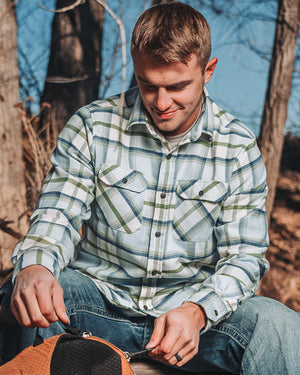
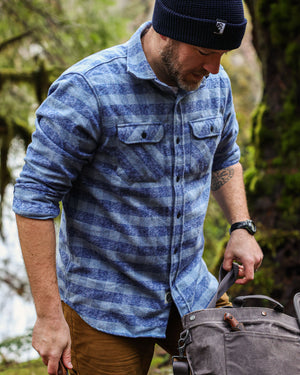
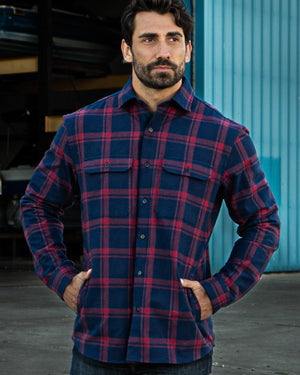
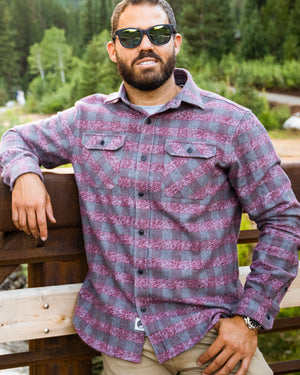
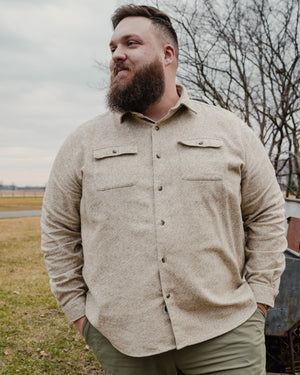
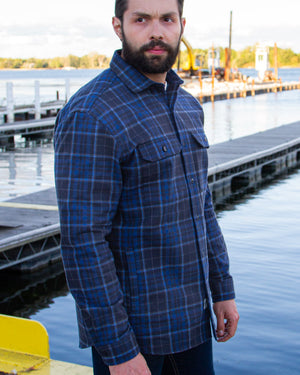
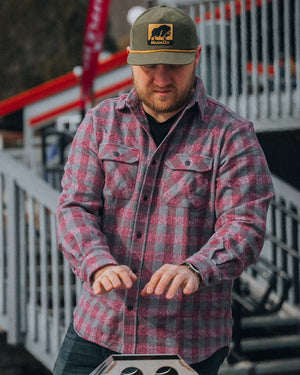

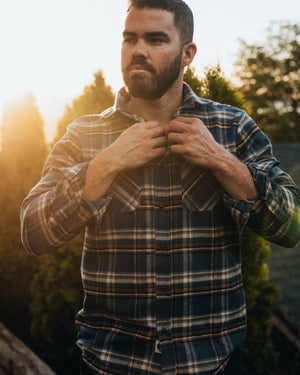
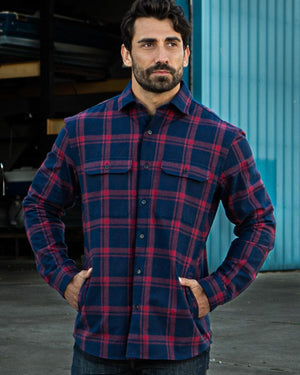
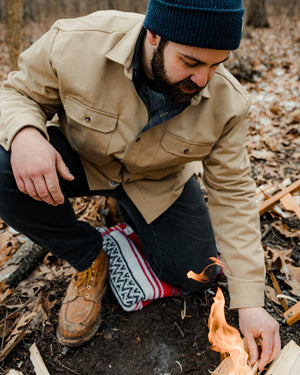
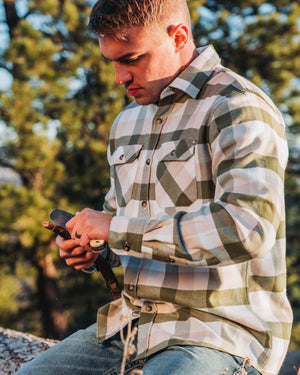
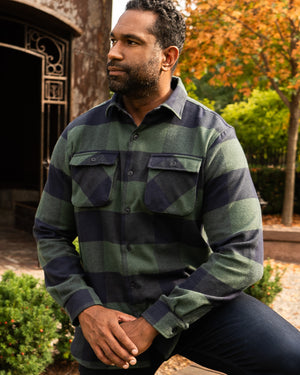


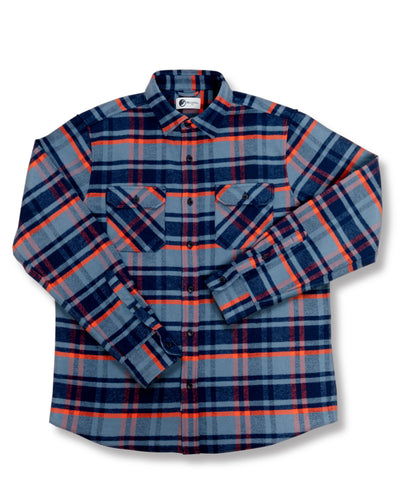

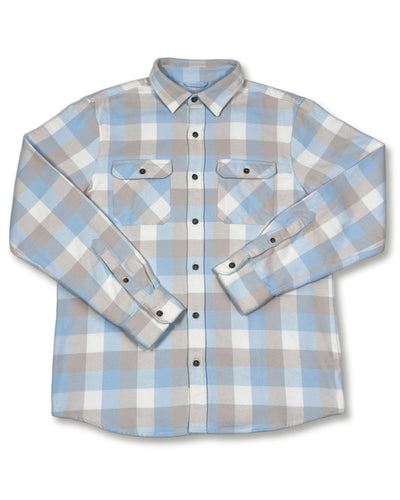
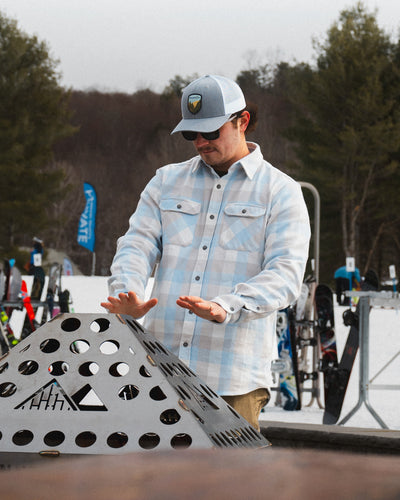
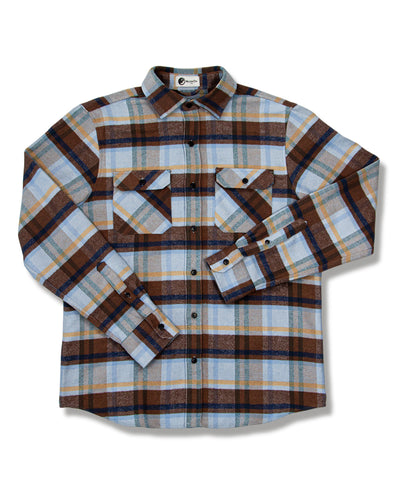
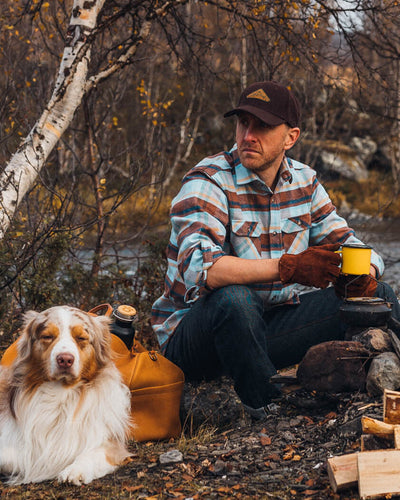
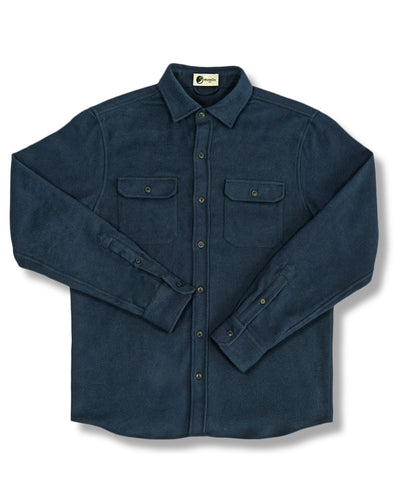
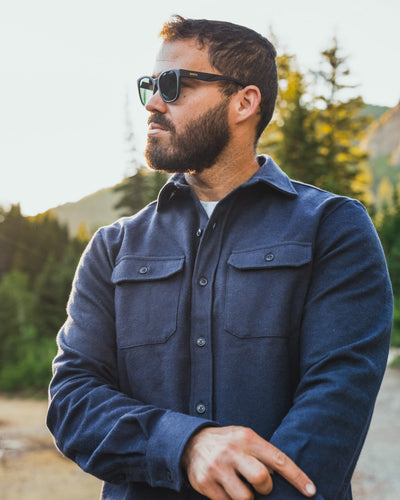



Leave a comment